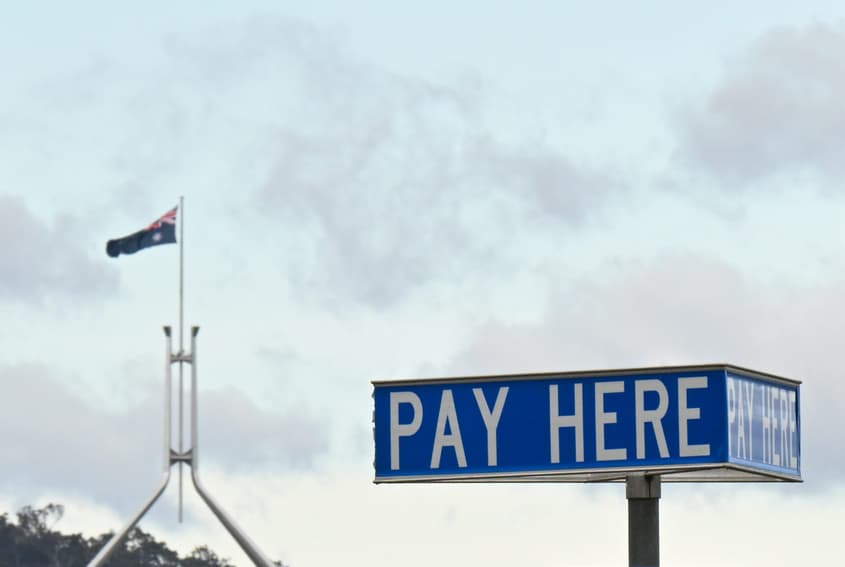Big companies are paying little or no tax, which limits the Government’s ability to fund essential services like healthcare, housing, and education.
Thu 9 Oct 2025 15.00

Photo: AAP Image/Lukas Coch
Australia could have an extra $130 billion a year to spend on essential services if the Government simply collected the average amount of tax taken by other developed nations.
The Australia Tax Office’s annual Tax Transparency report has revealed around 30% of large corporations paid no company tax in 2023-24, with the gas, coal, salmon and tech industries among the worst offenders.
While analysing the report on the Australia Institute’s Follow the Money podcast, senior economist at the Australia Institute, Matt Grudnoff, said the gas industry “takes the gold medal in tax avoidance”.
Despite raking in billions in revenue, he said companies such as Conoco Phillips, Santos and Inpex paid little or no tax, while their profits flowed offshore.
“They earned hundreds of billions of dollars in revenue and they paid, just those ones I mentioned, about $6 billion in tax. But you’re talking about a tiny percentage of their overall revenue,” he said.
Mr Grudnoff said the big, multinational companies exploit a mix of accounting loopholes, complex corporate structures and infrastructure investment strategies to minimise their tax obligations.
While the coal industry pays a little more tax compared to gas, Mr Grudnoff points out “it actually makes a lot less profit, or at least a lot less revenue” however, “compared to their revenues it was also really small.”
Rio Tinto, BHP and Fortescue were the biggest three taxpayers for the year while big tech “not surprisingly” banked about $25 billion but only paid half a billion, or 2%, in tax.
Streaming giant, Netflix, made $1.2 billion of revenue from its Australian operations and paid not one cent in tax.
“Trumps’s basically said … these are American companies and I’m not going to put up with other countries taxing these companies,” explained Mr Grudnoff. “He’s basically threatened tariffs on companies who do crack down on these big tech companies.”
However, he said ordinary Australians shouldn’t be left to carrying the burden.
“One of the big problems that we see facing Australia is we always feel poor.”
The reason being, he said, is because being a low-tax country limits the Government’s ability to fund essential services like healthcare, housing, and education.
“We are so low that if we just collected the average amount of tax, we are one of the richest countries in the world in fact. But even if we just had the average … and that would just make us average.”
And being average pays off.
“If we had just an average tax, then we would have an extra $130 billion a year to spend.”
Unlike the fossil fuel and tech industries, the major banks are consistently among the country’s biggest corporate taxpayers.
The big four – Commonwealth Bank, Westpac, and NAB, with ANZ – paid a combined $10 billion.
“They’re what economists call oligopolies. They’re in industries where there’s only a few firms and those firms dominate the industry and have lots of market powers,” the senior economist said.
“What we should be doing is taxing them more because effectively those taxes are coming from ripping people off.”
Mr Grudnoff said Canberra needs to make some big changes, such as taxing big companies on how much they earn, not how much profit they have left over after expenses.
“When you and I pay income tax, it’s not based on how much money we have left over at the end of the fortnight just before we get paid. It’s based on how much we earn. That’s not the case with companies.”
Now in it’s eleventh year, the ATO’s Tax Transparency report is having an impact, Mr Grudnoff said.
“Despite the fact that 28% of these big companies paid no tax, that’s actually the lowest rate ever we’re had so far.
“We have a long way to go to be clear, but it is great to see that sunlight actually works.”